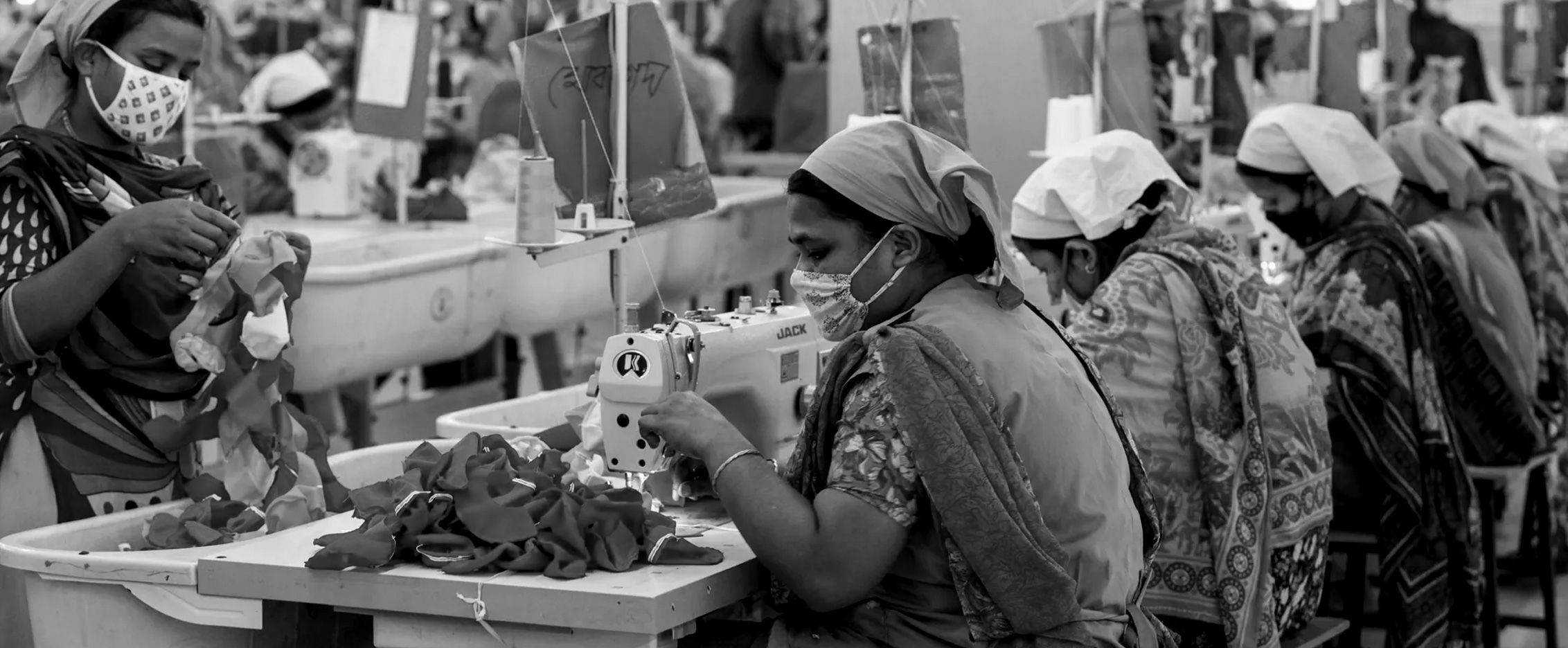
Asia Floor Wage Alliance Women’s Leadership Committee Statement on ILO Convention 190
September 20th, 2019
Asia Floor Wage Alliance Women’s Leadership Committee
As women trade union leaders of the Asia Floor Wage Alliance, Women’s Leadership Committee (AFWA-WLC), we represent thousands of women garment workers in Bangladesh, Cambodia, India, Indonesia, and Sri Lanka. Our members produce clothes for H&M, Gap, Walmart and other well-known multinational brands that employ tens of thousands of women in the global south. The AFWA-WLC believes that the labor-power, especially in industries dominated by women workers, must be built through women’s trade union leadership. In a global industry like the garment sector, this power must be built across borders- through global organizing- to support bargaining between workers, their employers, and multinational brands.
In June 2019, the International Labour Organisation — in its 100th year — voted overwhelmingly to adopt a new Convention and Recommendation to end violence and harassment in the world of work. Convention 190 (C190) explicitly addresses gender-based violence and harassment (GBVH) in the world of work. We applaud this effort and the women trade union leaders from around the world who organized to win this historic victory.
We know from experience, however, that international labor standards require implementation in order to eliminate GBVH. For the garment sector, this requires brands and suppliers–in partnership with unions with strong women’s leadership—to catalyze transformational interventions in garment global supply chains. On garment global supply chains, where production takes place exclusively in the Global South, successful interventions require investment in building the power of women trade union leaders from across the global south to engage with global brands and suppliers.
Corporate social responsibility divisions of global garment brands have developed multiple training programs for the workplace. At the ground level, however, these trainings have failed to address the spectrum of GBVH that women garment workers face on production lines. We know from experience that trainings cannot accomplish the deep transformation in organizational culture that is required to end GBVH in garment factories.
Preventing GBVH is not only fundamental to the health, safety, and dignity of women workers, it is also foundational to freedom of association and collective bargaining in industries dominated by women workers. Freedom of association and collective bargaining, in turn, are cornerstones to attaining living wages—a decade-long mandate of the AFWA.
The AFWA Safe Circle approach to eliminating GBVH on garment production lines has been informed by our collective experience in addressing violence and building women’s leadership on production lines in garment factories in Asia.
We Know GBVH on Garment Production Lines, and We Know the Way Forward to Transform our Factories and Our Countries
In 2018, we conducted and released evidence-based research on GBVH in garment global supply chains in Asia. Shining a global spotlight on the dark side of gender oppression and violence in the global fast fashion industry, we exposed a reality that workers, trade unions, and brands themselves already knew all too well.
Following from this deep analysis, we worked with Global Labor Justice to develop innovative solutions to end GBVH. Our 2019 report, “Gender Justice on Garment Global Supply Chains: An Agenda to Transform Fast-Fashion,” presents a clear road map for fast fashion brands on how to end gender-based violence and harassment (GBVH) on garment production lines.
The roadmap in our 2019 report uplifts the AFWA-WLC’s Safe Circle Approach, a transformative approach to GBVH prevention that provides a step-by-step methodology for corporate accountability. Focused on the front lines of GBVH, the Safe Circle approach provides guidance for implementing the crucial missing links in existing workplace programs to address GBVH: organizational transformation through the empowerment of women workers on production lines.
We Urge All Garment Brands Sourcing in Asia to Work with the AFWA-WLC to Implement the Safe Circles Approach
Global garment brands must take responsibility and action to eliminate GBVH in their supply chains by compelling organizational change in supplier factories. Action to end GBVH on production lines is fundamental to ensuring that women workers can exercise their voice and rights at work without fear of retaliation.
The undersigned (and growing) alliance of women trade union leaders of the AFWA-WLC call for change in the working lives of women workers. We, therefore, call upon multinational brands to make serious commitments to ending GBVH in the garment industry and to invest in women’s empowerment. We call for them, together with their suppliers, to work with women workers and trade union leaders to implement by taking the following steps:
- Publicly encourage ratification of ILO Convention 190 in countries where their supply chains operate.
- Consult with the Asia Floor Wage Alliance- Women’s Leadership Committee and Adopt the “Safe Circles Approach” in coordination with the Women’s Leadership Committee.
- Join a public sector-side corporate accountability mechanism to validate their commitment.
Signed:
- Sumiyati, SPN, Indonesia
- Elly Rosita, Garteks, Indonesia
- Lusiana, FSBI, Indonesia
- Vindra Whindalis, SBSI92, Indonesia
- Yang Sophorn, CATU, Cambodia
- Heng Chenda, CCAWDU, Cambodia
- Rukmini V.P., GLU, India
- Pooja, KOOGU, India
- Anannya Bhattacharjee, GAWU, India
- Chamila Tushari, DCU, Sri Lanka
- Lakmali Hemachandra, CMU
- N.M. Riyana Ferios, NUSS
- Lalitha Ranjanee Dedduwakumara, TGCWU, Sri Lanka


